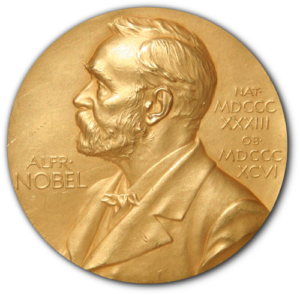(la version française suivra sous peu)

The Royal Swedish Academy of Sciences today announced that the 2017 Nobel Prize in Physics is awarded jointly to US-based researchers of the LIGO/Virgo collaborations for “decisive contributions to the LIGO detector and the observation of gravitational waves”. The Prize is awarded as one half to Rainer Weiss from the Massachusetts Institute of Technology (MIT), and the other half jointly to Kip S. Thorne and Barry C. Barish from the California Institute of Technology (Caltech).
The recognition of LIGO’s tremendous accomplishment is exciting news for Canada and for international scientific collaboration. The University of Toronto’s Canadian Institute for Theoretical Astrophysics (CITA) is one of the contributing members of the LIGO Scientific Collaboration and has been actively involved in the data analysis of gravitational wave detection.
As noted by Dr. Pen, Director of CITA, “The first detection of gravitational waves was a stunning discovery of the highest calibre, fully deserving of the award of the 2017 Nobel Prize in Physics. The discovery capped decades of intense research and opened an entirely new means of observing the universe, which will produce marvelous new insights for decades to come. CITA, CIFAR, and the University of Toronto are proud to have played a small part in these accomplishments through computer calculations of merging black holes and contributions to identification and characterization of the gravitational wave events. We wish the LIGO and Virgo teams every success in what promises to be a very exciting and productive future.”
Dr. Stephen Pistorius, President of the Canadian Association of Physicists, said “we are thrilled with today’s announcement. The achievements of the LIGO team and the contributions made by CITA researchers illustrate the global nature of modern scientific collaboration in physics and how together we can uncover the mysteries of our shared universe”.
The Canadian Association of Physicists congratulates Rainer Weiss, Kip S. Thorne, and Barry C. Barish and the entire LIGO/Virgo collaboration on this prestigious award and for this important advancement in physics research.
More information about the 2017 Nobel Prize in Physics can be found on the Nobel Prize website at https://www.nobelprize.org/nobel_prizes/physics/laureates/2017/
